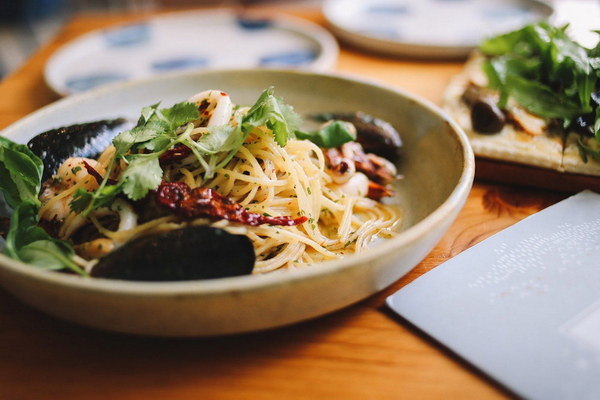Unlock the Secrets of Dongguan's Traditional Herbal soups A Journey into Health and Taste
In the bustling city of Dongguan, Guangdong Province, China, there lies a hidden culinary gem that has been cherished for generations: the traditional herbal soups. These soups, known as Yao Shan Tang or Herbal Medicine Soup, are a testament to the profound connection between Chinese herbal medicine and culinary art. This article takes you on a journey to explore the wonders of Dongguan's herbal soups, their health benefits, and the rich flavors that await those who dare to delve into this ancient tradition.
The Origin of Dongguan's Herbal Soups
Dongguan's herbal soups trace their roots back to the Ming Dynasty, when the region was known for its fertile soil and abundant natural resources. The locals, being well-versed in the art of Chinese herbal medicine, began to incorporate various herbs and medicinal plants into their everyday diet. Over time, these herbal soups became a staple in Dongguan's cuisine, offering both nourishment and healing properties.
Key Ingredients and Health Benefits
Dongguan's herbal soups are made using a variety of herbs, roots, and other natural ingredients, each chosen for its unique properties and health benefits. Some of the most commonly used ingredients include:
1. Astragalus Root (Huang Qi): Known for its immune-boosting properties, Astragalus Root helps to strengthen the body's defense against illnesses.

2. Goji Berries (Gou Qi Zi): Rich in antioxidants and vitamins, Goji Berries are believed to enhance longevity and improve vision.
3. Ginseng (Ren Shen): A well-known adaptogen, Ginseng is known for its ability to boost energy levels and improve cognitive function.
4. Dried Tangerine Peel (Chen Pi): This ingredient aids in digestion and relieves symptoms of bloating and gas.
5. White Peony Root (Bai Shao): Known for its anti-inflammatory properties, White Peony Root is often used to alleviate pain and discomfort.
In addition to these ingredients, Dongguan's herbal soups may also include a variety of meats, such as chicken, pork, or fish, as well as vegetables and grains. This diverse combination of ingredients not only enhances the flavor of the soup but also maximizes its health benefits.
The Art of Soup Making
Preparing a traditional Dongguan herbal soup is an art form that requires patience, skill, and a deep understanding of Chinese herbal medicine. The process begins with selecting the freshest and highest-quality ingredients, which are then cleaned, chopped, and soaked in water to release their medicinal properties.
The ingredients are then slowly cooked over low heat for several hours, allowing the flavors to meld together and create a rich, aromatic broth. This slow-cooking process ensures that the soup is not only delicious but also retains the maximum amount of health benefits.
Enjoying Dongguan's Herbal Soups
Dongguan's herbal soups can be found in many local restaurants and street food stalls, as well as in the homes of locals. They are often enjoyed as a meal in themselves, or as a complement to other dishes.
The rich, savory broth is the perfect base for a variety of ingredients, and the health benefits make these soups an ideal choice for those looking to boost their immune system, improve their digestion, or simply enjoy a warm, comforting meal.
Conclusion
Dongguan's traditional herbal soups are a testament to the deep connection between Chinese herbal medicine and culinary art. These soups not only offer a rich, flavorful experience but also provide numerous health benefits. So, the next time you find yourself in Dongguan, be sure to sample one of these timeless treasures and embark on a journey into health and taste.









